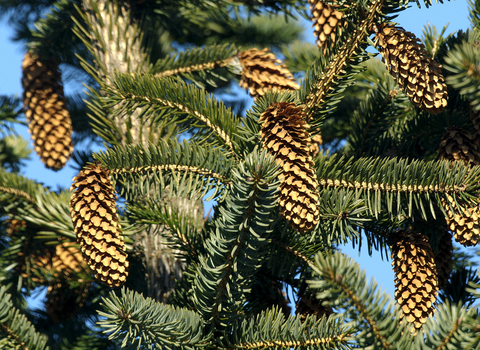
©northeastwildlife.co.uk
Sitka spruce
The Sitka spruce was introduced into the UK from North America in the 19th century. It has been widely planted as a forestry tree; look for classic needle-like leaves and pale brown, domed cones.
Scientific name
Picea sitchensisWhen to see
January to DecemberTop facts
About
The Sitka spruce is a tall, evergreen conifer originally from the west coast of North America. It was introduced into the UK in 1831 and has become our most widely planted forest tree. Between the 1950s and 1980s, it was notoriously planted in large, regimented, dark and uniform forests.It is conical in shape, displays needle-like, pointed leaves, and has large, domed cones that open their 'scales' to release the seeds inside.
